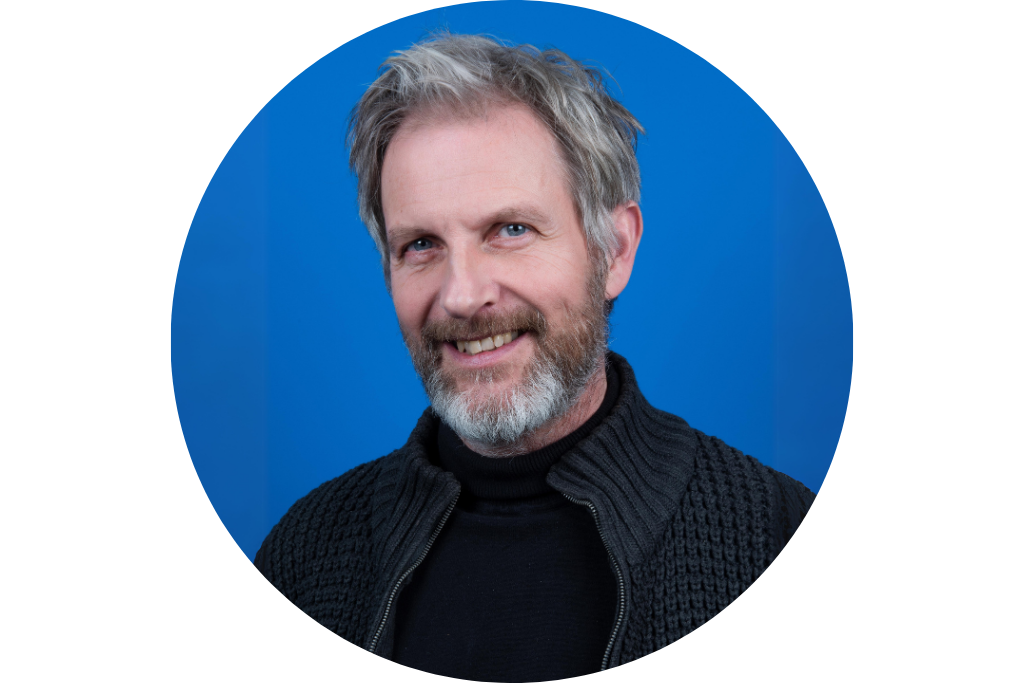
Professor of Bridging the gap between government and people in the margins of society
- Bridging the gap between government and people in the margins of society
‘Professionals should be able to spend their time as usefully as possible’
Henk Spies, professor of Mind the Gap
What does it take to keep people on the frayed edges of society engaged and moving forward in life? For Professor Henk Spies, this has been a central question throughout his career. His main conclusion after 30 years of research in the social domain: everything works sometimes, but nothing works all the time. That’s why his studies always involve an in-depth exploration of the topic at hand. “I want to give professionals tools that make it easier for them to deliver customised services. I want to make it easier for them get to the essence in complex situations so that they can really help people move forward, without getting tangled up in all kinds of details and opinions.”
Henk Spies studied psychology at Utrecht University, where he then worked for 10 years as a researcher at the Faculty of Social Sciences. Even then, at-risk youth were of special interest to him, and he obtained his PhD with a dissertation on social exclusion and participation policy. In the years that followed, Spies worked as a researcher, adviser, instructor and project leader for various social services, welfare organisations, educational institutions, industry organisations and ministries. He now runs his own research and consultancy firm and has been a professor at Avans since 2020.
Facts and opinions
With his research group, Spies is investigating how professionals in the social domain can do their work as effectively as possible. “How can you help people find – and keep – suitable jobs? How do you prevent young people from choosing a life of crime? The answers to questions like that are never straightforward,” Spies knows. “Professionals in this field are surrounded by lots of other people with their own ideals and opinions: from politicians and policymakers to managers, experts and citizens. But ultimately, it’s about figuring out what works for the people we want to help. It’s not our beliefs that are most important, but the extent to which we’re able to connect with how people see their own situation. The government’s current focus on control and accountability isn’t exactly helpful. We must prevent idealistic professionals from turning into cynics, because then they become part of the problem instead of the solution.”
Digging deep
From the beginning of his research career, the practical applicability of his findings has been a key focus for Spies. “To me, applicability is the ultimate scientific criterion, so a university of applied sciences is a good environment for me – together with our partners, we strive to make a difference in people’s everyday lives. Take the Youth Employment Guarantee Act that was introduced in the 1990s. The idea at the time was that if you apply enough pressure, young people will eventually take action. But it’s not that simple. What’s much more important is how young people perceive their own situation: do they feel that certain doors are closed to them, that they don’t measure up, that too much is expected of them or that they don’t fit into the system? Someone’s own perception is often more decisive for their life’s trajectory than their actual situation, for example in terms of education, finances, health or family. To understand how to help people move forward in complicated situations, you have to dig deep. I think it’s impressive when a professional is able to see the person and not just the situation.”
Norway
In addition to his work in the Dutch social domain, Spies also regularly works as an innovation consultant in Norway. A project he was involved in there piloted a different kind of intake interview for people claiming benefits. “Instead of talking about standard amounts and obligations, we asked a simple question: how much do you need? This led to discussions about budgeting, after which clients would often arrive at a figure below the standard amount.” Spies also works for a Norwegian foundation called Forandringsfabrikken. “In Norway, young people are included in discussions about how to improve youth welfare at all levels. Forandringsfabrikken asks young people currently receiving youth assistance about their experiences, and they’re especially keen to learn from negative feedback. The presentations given by these young people, including at Avans, leave a deep impression. Many of Forandringsfabrikken’s recommendations have been incorporated into Norway’s new Youth Act – for the first time since its introduction, it now includes the word ‘love’.”
Spies regularly trains professionals, including on the overarching methodology he developed for effective interventions. “I want to ensure that others don’t need 30 years to acquire the practical wisdom needed to create a safe and resilient society. Gathering and sharing knowledge is my way of helping to bridge the gap between government and citizens.”
Henk Spies delivered his inaugural lecture on 1 April 2022. A recording of his speech is available here.

